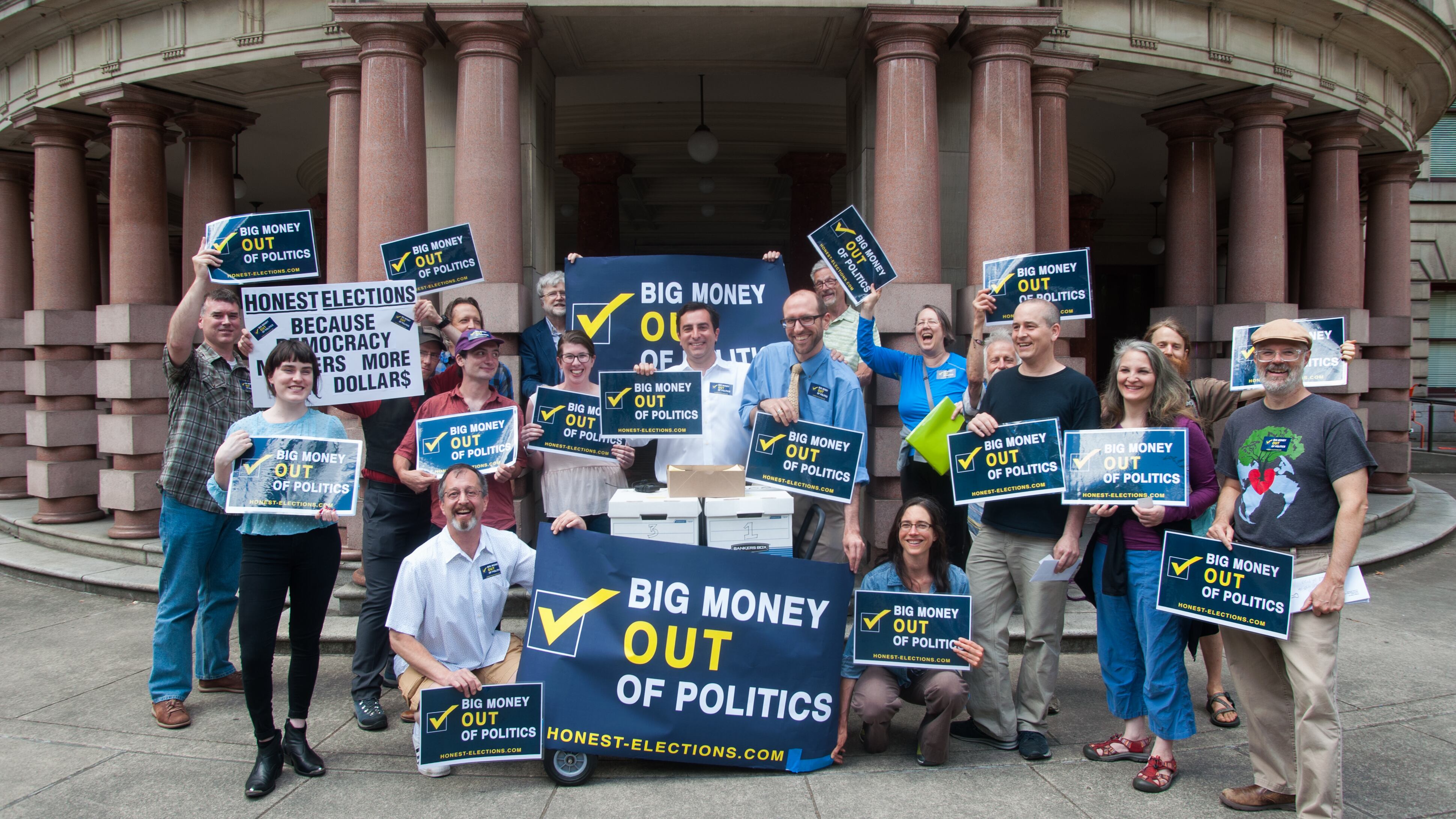A measure limiting campaign donations in Portland races is likely to make the ballot in November, and it has a good chance of passing if it does.
The campaign for the donation-cap measure has gathered 55,197 signatures, supporters say, significantly more than the required 34,156 needed to put it on the ballot according to the city auditor's office. (A similar county measure passed in 2016 with 89 percent of the vote.)
The measure prohibits contributions from corporations, and limits contributions from individuals and political committees to $500 per candidate. It will apply to all city positions including mayor, city commissioners, and city auditor.
Individuals will only be allowed to spend $5,000 in independent expenditures per year, and political committees can only spend $10,000 collectively, $500 from each individual.
Oregon is among the least regulated states when it comes to capping donations to political campaigns. Only five other states do not cap the amount of corporate contributions. Twenty-two states have completely banned corporate contributions.
But big donations don't always win the day in Portland politics—consider the May City Council primary, where Jo Ann Hardesty finished with the most votes with far less donations than the second-place finisher, Multnomah County Commissioner Loretta Smith. (Felicia Williams recorded the largest single donation —$41,000—from her live-in partner, and finished a distant third.)
The measure will also require politicians to list their five largest contributors on political advertisements.
Voters overwhelmingly approved Multnomah County donation limits in 2016. But since then, a Multnomah County circuit judge has struck down the measure on the grounds that donations are protected as free speech under the Oregon constitution.
That ruling might dampen support, but backers of the county measure are appealing.
"We believe the Oregon Supreme Court will find it constitutional," says attorney Jason Kafoury, a backer of the city measure. "We believe we are changing the culture of how people run for office."

